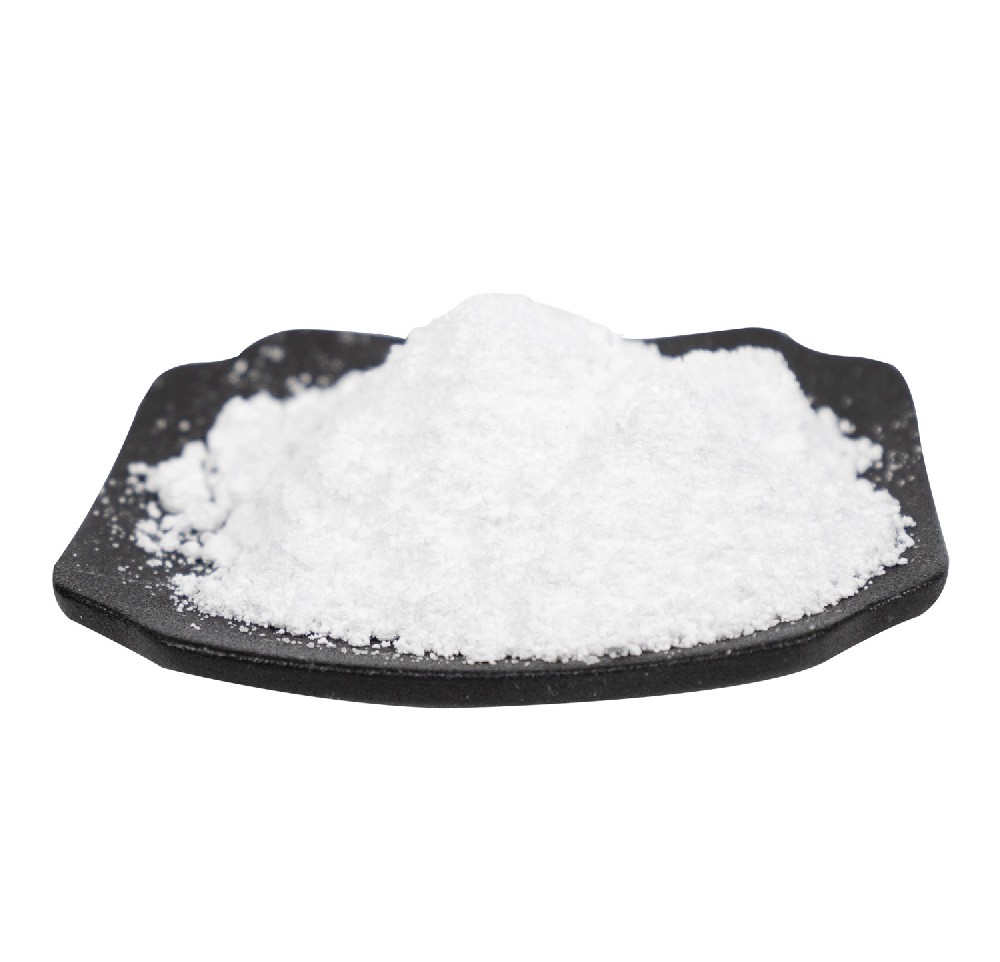Sales hotline
Sales hotline
Home >> Products >> Pharmaceutical API


CAS number:135459-87-9
molecular formula:C12H6N2O8SSr2
molecular weight:513.491
EINECS number:690-882-9
Ranelate StrontiuM;StrontiuM ranelate (Protelos);2,2'-((5-Carboxy-4-(carboxyMethyl)-3-cyanothiophen-2-yl)azanediyl)diacetic acid, distrontiuM salt;StrontiuM 2,2'-((5-carboxylato-4-(carboxylatoMethyl)-3-cyanothiophen-2-yl)azanediyl)diacetate;StrontiuM Ranelic;StrontiuM ranelate SynonyMs DistrontiuM renelate;2-[N,N-Di(carboxymethyl)amino]-3-cyano-4-carboxymethylthiophene-5-carboxylic acid strontium salt;Ranelic acid strontium salt
Strontium ranelate is a drug for the treatment of osteoporosis, its appearance is white to slightly yellow powder or crystalline powder, odorless, slightly soluble in water, almost insoluble in ethanol, easily soluble in dilute hydrochloric acid,
Strontium ranelate has dual pharmacological effects of inhibiting bone resorption and promoting bone formation. On the one hand, in osteoblast-rich cells, it can increase the synthesis of collagen and non-collagen, and promote osteoblast-mediated bone formation by enhancing the proliferation of pre-osteoblasts. On the other hand, by reducing the differentiation and resorption activity of osteoclasts, bone resorption is reduced, so that bone renewal can be rebalanced, which is beneficial to bone formation.
Propyl disulfide, also known as dipropyl disulfide, propyl disulfide propane, di-n-propyl disulfide, has a strong aroma of onion and garlic, and is an important edible spice. Naturally present in cabbage, onion, garlic and fried peanuts, it can be used to formulate various edible flavors, especially in seasoning flavors.
| Melting point | >310°C (dec.) |
| Storage conditions | Inert atmosphere,Store in freezer, under -20°C |
Solubility | H2O: soluble1mg/mL, clear (warmed) |
| Shape | powder |
| Color | white to beige |
| CAS database | 135459-87-9 |
● It is mainly used to treat and prevent osteoporosis in postmenopausal women, and significantly reduce the risk of vertebral fractures and hip fractures.
● Active Pharmaceutical Ingredients
API, also known as active pharmaceutical ingredients, refers to any substance or mixture of substances used in the manufacture of drugs. Such substances are used in the diagnosis, treatment, symptom relief, treatment or prevention of diseases. It has pharmacological activity or other direct effects or can affect the function or structure of the body. API meaning pharma.
API Active Pharmaceutical Ingredients
Obtained from natural medicine. Natural medicine is an important part of medicine. For example, artemisinin, an effective antimalarial ingredient isolated from the traditional Chinese medicine Artemisia annua.
Take existing drugs as first-comers.
1) Discover the active ingredients of the drug from the side effects of the drug. For example, the phenothiazine antipsychotic chlorpromazine and its analogs are developed from the sedative side effects of the similarly structured antihistamine promethazine.
2) Obtained through drug metabolism research. For example, the metabolites of antidepressants imipramine and amitriptyline, norimipramine and noramitriptyline, have stronger antidepressant effects than the original drug; oxazepam is the active metabolite of diazepam.
3) Leading with existing breakthrough drugs. For example, the research on lansoprazole and other prazols is based on omeprazole, which is more active than omeprazole.
Obtained by screening with pharmacological model. Through combinatorial chemistry, a large number of chemical libraries with different structures are constructed without separation of mixtures. Through high-throughput screening, the components are found to have pharmaceutical activity and then separated, and the structure of the active compound is determined.
Designed according to physiological and pathological mechanisms. For example: the study of fluorouracil takes the nucleotide uracil synthesized from DNA or RNA as the lead compound, and replaces the hydrogen at position 5 with fluorine, making it a metabolic antagonist of the normal metabolites of the organism, and is used as an antitumor drug
Sales hotline:

 Scan and consult wechat customer service
Scan and consult wechat customer service